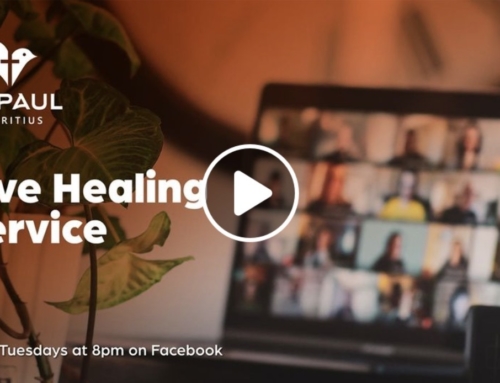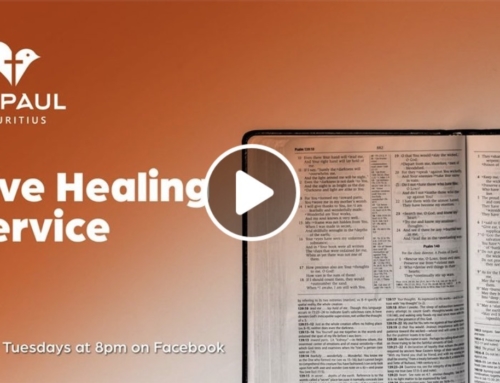Sermon by Ps Philip Tse
Types of love – Part 1
In the Gospels (Matthew 22:36–40; Luke 10:27; Mark 12:28–31), Jesus instructed us to love our neighbours. What kind of love is Jesus referring to? Ancient Greeks used seven words to define the different kinds of love we can experience:
- Eros – fall in love (coup de foudre), romantic love, sexual love, ‘love from feelings’. God created Eros love between man and woman for a marriage relationship. In Matthew 19:4-6, Jesus Christ said “Have you not read that He who made them at the beginning ‘made them male and female,’ and said,‘ For this reason a man shall leave his father and mother and be joined to his wife, and the two shall become one flesh’? So then, they are no longer two but one flesh. Therefore, what God has joined together, let not man separate.”
- Ludus – uncommitted love, ‘love from the flesh’. It can involve activities such as teasing, open flirting, and seducing one or many partners. The focus is on carnal pleasures with no marital engagement with the partner(s). Problems arise when one partner mistakes ludusfor eros. Debauchery is now very common with more and more people engaging in sex without marriage commitment, excess food and alcohol. Ludus is sexual immorality and is a sin. 1 Thessalonians 4:3-5 “or this is the will of God, your sanctification: that you should abstain from sexual immorality; that each of you should know how to possess his own vessel in sanctification and honor, not in passion of lust, like the Gentiles who do not know God”. Read also 1 Corinthians 6:18.
- Pragma – A kind of practical love (love from the head) founded on reason and one’s longer-term interests. The focus is more on personal qualities, compatibilities, shared goals, and making it work. Pragma is an arranged marriage for a purpose rather than on sexual attraction (Eros). Pragma is also seen in certain high-profile celebrity and political pairings.
- Philia/Phileo – brotherly love, friendship, ‘love of belongingness’. Friendships founded on goodness are associated with mutual benefit, companionship, dependability, and trust. David and Jonathan is an illustration of phileolove: “After David had finished talking with Saul, Jonathan became one in spirit with David, and he loved him as himself… And Jonathan made a covenant with David because he loved him as himself” (1 Samuel 18:1-3).
- Philautia – Self love (ego love), which can be healthy or unhealthy. A person with an unhealthy philautia (hubris) inflates his ego, abilities, or accomplishments accompanied by pride or arrogance. A hubris person can sometimes place himself above God, or, like some politicians, above the greater good. He can elevate statues/images of his own self. As it disregards truth, hubris promotes injustice, conflict, and enmity.Hubris leads to destruction and eventually to self-destruction.
- Storge – familial love, love between parentsand their children, ‘love which nourishes and grows’. This is the type of love found in Martha and Mary who lost their brother Lazarus (John 11), and in Abraham for his son Jacob (Genesis 22:2). There is evidence that children growing with storge love are more stable and respectful in their relationship with other people, and have greater chance of becoming trustworthy persons.
- Agape – God’s love; Selfless love; Do good to others with a pure motive; ‘love from the spirit’ which is given by the Holy Spirit.
When Jesus Christ instructed us to ‘love our neighbours’, he was referring to Agape love. God first loved us (1 John 4:19) and showed his agape love to all human beings by sending His Unique Son Jesus Christ on earth. Whoever accepts Him is saved from sins and has eternal life (John 3:16, 1 John 4:9-10). In addition, God poured agape love in the hearts of those people through the Holy Spirit, so that in return, they exercise the agape love towards their neighbours.
Jean 17:26 « Je leur ai fait connaître ton nom, et je le leur ferai connaître, afin que l’amour dont tu m’as aimé soit en eux, et que je sois en eux ».
Romains 5:5 « Or, l’espérance ne trompe point, parce que l’amour de Dieu est répandu dans nos coeurs par le Saint Esprit qui nous a été donné ».
Which kind of love are we pursuing? Which kind of love really matters?
Many young men and women pursue eros love as they think that a love partner will fulfill their emotions and dreams in return. Most popular songs are written on Eros love. Many parents pursue storge love as they invest a lot of resources in parental upbringing. In modern world, many have ludus motive and constantly run after the opposite sex for conquest and fleshly desires.
What kind of love is motivating you to come to church?
- Is it for eros reason so as to please the person whom you are in love?
- Is it for ludus reason as you are trying to flirt with girls or boys?
- Is it for friendship (philia) or socialisation?
- Is it for philautia as you see the church as a place where you can elevate your ego and your position?
- Is it that you are responding to God’s love (agape)?
I am really disturbed when I read Luke 10:25,27 “And behold, a certain lawyer stood up and tested Him, saying, “Teacher, what shall I do to inherit eternal life?… ‘You shall love the Lord your God with all your heart, with all your soul, with all your strength, and with all your mind,’ and ‘your neighbor as yourself.”
According to this verse, those persons who exercise agape love will inherit eternal life. It appears that it is not sufficient that I learn to be a good spouse (eros), a good parent (storge), a good friend (philia), and refrain myself from being an unhealthy philautia person, and from ludus love. Without the exercise of God’s love (agape), I will not inherit eternal life.
This conclusion leads me to another disturbing bible verse, which states that although I am a spiritual person with the gifts, knowledge and faith, and I may give all to feed the poor, but I have not love (agape), I am nothing.
1 Corinthians 13:1-3 “Though I speak with the tongues of men and of angels, but have not love, I have become sounding brass or a clanging cymbal. 2 And though I have the gift of prophecy, and understand all mysteries and all knowledge, and though I have all faith, so that I could remove mountains, but have not love, I am nothing. 3 And though I bestow all my goods to feed the poor, and though I give my body to be burned, but have not love, it profits me nothing”.
Dear brothers and sisters-in-Christ, let us all not neglect God’s love which has been poured in our hearts through the Holy Spirit, and let us exercise that God’s love to our neighbours so that we can inherit eternal life.






